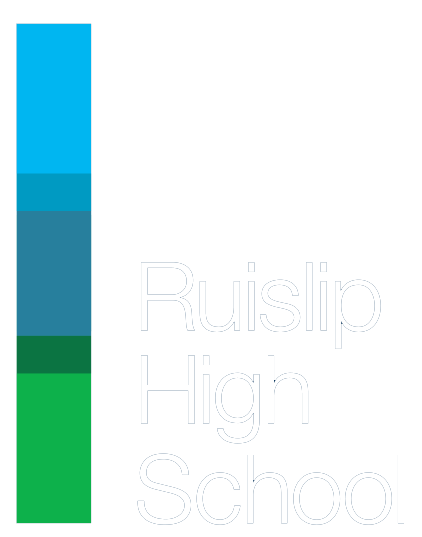Psychology
Psychology explores the way people think, behave, react, and interact. It is the study of human behaviour, and the thoughts and emotions that influence behaviour. It will help you to understand how and why individuals think, act and feel the way they do. Studying Psychology will enable you to apply this knowledge to your own behaviour, as well as the behaviour of others, promoting an awareness of psychological health and wellbeing.
Why study this subject at Ruislip High School?
- A history of excellent results: regularly ranked in the top 10% nationally;
- Students have had the opportunity to run their own whole-school psychological experiment in previous years;
- The school has links with the psychology departments at top universities (UCL’s Professor of Cognitive Neuroscience, Sarah-Jayne Blakemore, congratulated RHS Psychology students on their replication of her team’s psychology experiment)
- RHS students are regularly asked by university psychology departments to take part in their psychology experiments;
- RHS hosts regular neuroscience lectures for students, led by experts in the field;
- Excellent psychology post-18 and careers advice offered;
- Exciting associated trips and activities
- Professor Philip Zimbardo’s conference on ‘how good people turn evil’. Zimbardo discusses his pioneering research in social psychology - the Stanford prison experiment.
- The Freud Museum. The Freud Museum was the final home of Sigmund Freud, the founder of psychoanalysis. The Freud family came to England as refugees, having escaped Austria following the Nazi annexation in March 1938. Freud spent the last year of his life here and the house remains as it was in 1938.
Course Content
Paper 1:
- Social influence
- Memory
- Attachment
- Psychopathology
Paper 2:
- Approaches in psychology
- Biopsychology
- Research methods
Paper 3:
- Issues and debates
- Relationships
- Eating behaviour
- Aggression
Course assessment
Exam Board: AQA
- Paper 1: written exam: 2 hours, 96 marks in total, 33.3% of A-level
- Paper 2: written exam: 2 hours, 96 marks in total, 33.3% of A-level
- Paper 3: written exam: 2 hours, 96 marks in total, 33.3% of A-level
How do I know if psychology will suit me?
You will succeed in studying psychology if:
- You are curious about human behaviour and how the mind works
- You are a critical thinker
- You enjoy discovering new and exciting research
Possible degree options
The top six degree courses taken by students who have an A-level in psychology are:
- Psychology
- English
- Sociology
- Teaching
- Business studies
- Sport and exercise science
- Law
Possible career options
Studying psychology at A Level, and then at undergraduate level, can give you a whole host of exciting career options, including:
- Clinical psychologist
- Counselling psychologist
- Educational psychologist
- Forensic psychologist
- Further education teacher
- Health psychologist
- High intensity therapist
- Occupational therapist
- Primary care graduate mental health worker
- Psychological wellbeing practitioner
- Sport and exercise psychologist

